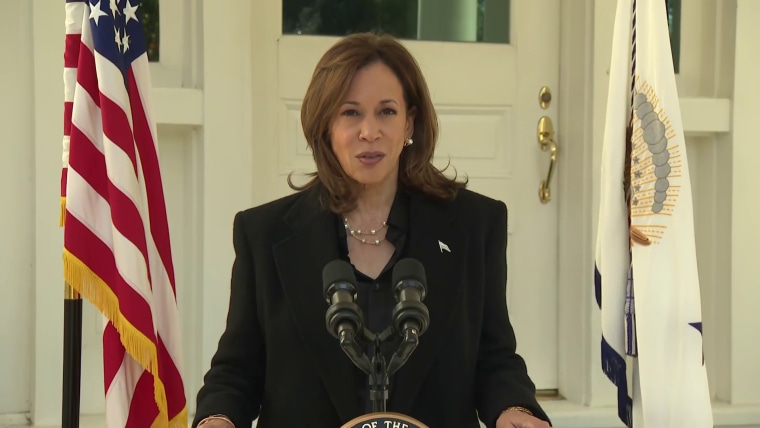INDIRECT (REPORTED) SPEECH TENSE CHANGE LIST


What is Reported Speech and how to use it? with Examples
Published by
Olivia Drake
Reported speech and indirect speech are two terms that refer to the same concept, which is the act of expressing what someone else has said.
On this page:
Reported speech is different from direct speech because it does not use the speaker’s exact words. Instead, the reporting verb is used to introduce the reported speech, and the tense and pronouns are changed to reflect the shift in perspective. There are two main types of reported speech: statements and questions.
1. Reported Statements: In reported statements, the reporting verb is usually “said.” The tense in the reported speech changes from the present simple to the past simple, and any pronouns referring to the speaker or listener are changed to reflect the shift in perspective. For example, “I am going to the store,” becomes “He said that he was going to the store.”
2. Reported Questions: In reported questions, the reporting verb is usually “asked.” The tense in the reported speech changes from the present simple to the past simple, and the word order changes from a question to a statement. For example, “What time is it?” becomes “She asked what time it was.”
It’s important to note that the tense shift in reported speech depends on the context and the time of the reported speech. Here are a few more examples:
- Direct speech: “I will call you later.”Reported speech: He said that he would call me later.
- Direct speech: “Did you finish your homework?”Reported speech: She asked if I had finished my homework.
- Direct speech: “I love pizza.”Reported speech: They said that they loved pizza.
When do we use reported speech?
Reported speech is used to report what someone else has said, thought, or written. It is often used in situations where you want to relate what someone else has said without quoting them directly.
Reported speech can be used in a variety of contexts, such as in news reports, academic writing, and everyday conversation. Some common situations where reported speech is used include:
News reports: Journalists often use reported speech to quote what someone said in an interview or press conference.
Business and professional communication: In professional settings, reported speech can be used to summarize what was discussed in a meeting or to report feedback from a customer.
Conversational English: In everyday conversations, reported speech is used to relate what someone else said. For example, “She told me that she was running late.”
Narration: In written narratives or storytelling, reported speech can be used to convey what a character said or thought.
How to make reported speech?
1. Change the pronouns and adverbs of time and place: In reported speech, you need to change the pronouns, adverbs of time and place to reflect the new speaker or point of view. Here’s an example:
Direct speech: “I’m going to the store now,” she said. Reported speech: She said she was going to the store then.
In this example, the pronoun “I” is changed to “she” and the adverb “now” is changed to “then.”
2. Change the tense: In reported speech, you usually need to change the tense of the verb to reflect the change from direct to indirect speech. Here’s an example:
Direct speech: “I will meet you at the park tomorrow,” he said. Reported speech: He said he would meet me at the park the next day.
In this example, the present tense “will” is changed to the past tense “would.”
3. Change reporting verbs: In reported speech, you can use different reporting verbs such as “say,” “tell,” “ask,” or “inquire” depending on the context of the speech. Here’s an example:
Direct speech: “Did you finish your homework?” she asked. Reported speech: She asked if I had finished my homework.
In this example, the reporting verb “asked” is changed to “said” and “did” is changed to “had.”
Overall, when making reported speech, it’s important to pay attention to the verb tense and the changes in pronouns, adverbs, and reporting verbs to convey the original speaker’s message accurately.
How do I change the pronouns and adverbs in reported speech?
1. Changing Pronouns: In reported speech, the pronouns in the original statement must be changed to reflect the perspective of the new speaker. Generally, the first person pronouns (I, me, my, mine, we, us, our, ours) are changed according to the subject of the reporting verb, while the second and third person pronouns (you, your, yours, he, him, his, she, her, hers, it, its, they, them, their, theirs) are changed according to the object of the reporting verb. For example:
Direct speech: “I love chocolate.” Reported speech: She said she loved chocolate.
Direct speech: “You should study harder.” Reported speech: He advised me to study harder.
Direct speech: “She is reading a book.” Reported speech: They noticed that she was reading a book.
2. Changing Adverbs: In reported speech, the adverbs and adverbial phrases that indicate time or place may need to be changed to reflect the perspective of the new speaker. For example:
Direct speech: “I’m going to the cinema tonight.” Reported speech: She said she was going to the cinema that night.
Direct speech: “He is here.” Reported speech: She said he was there.
Note that the adverb “now” usually changes to “then” or is omitted altogether in reported speech, depending on the context.
It’s important to keep in mind that the changes made to pronouns and adverbs in reported speech depend on the context and the perspective of the new speaker. With practice, you can become more comfortable with making these changes in reported speech.
How do I change the tense in reported speech?
In reported speech, the tense of the reported verb usually changes to reflect the change from direct to indirect speech. Here are some guidelines on how to change the tense in reported speech:
Present simple in direct speech changes to past simple in reported speech. For example: Direct speech: “I like pizza.” Reported speech: She said she liked pizza.
Present continuous in direct speech changes to past continuous in reported speech. For example: Direct speech: “I am studying for my exam.” Reported speech: He said he was studying for his exam.
Present perfect in direct speech changes to past perfect in reported speech. For example: Direct speech: “I have finished my work.” Reported speech: She said she had finished her work.
Past simple in direct speech changes to past perfect in reported speech. For example: Direct speech: “I visited my grandparents last weekend.” Reported speech: She said she had visited her grandparents the previous weekend.
Will in direct speech changes to would in reported speech. For example: Direct speech: “I will help you with your project.” Reported speech: He said he would help me with my project.
Can in direct speech changes to could in reported speech. For example: Direct speech: “I can speak French.” Reported speech: She said she could speak French.
Remember that the tense changes in reported speech depend on the tense of the verb in the direct speech, and the tense you use in reported speech should match the time frame of the new speaker’s perspective. With practice, you can become more comfortable with changing the tense in reported speech.
Do I always need to use a reporting verb in reported speech?
No, you do not always need to use a reporting verb in reported speech. However, using a reporting verb can help to clarify who is speaking and add more context to the reported speech.
In some cases, the reported speech can be introduced by phrases such as “I heard that” or “It seems that” without using a reporting verb. For example:
Direct speech: “I’m going to the cinema tonight.” Reported speech with a reporting verb: She said she was going to the cinema tonight. Reported speech without a reporting verb: It seems that she’s going to the cinema tonight.
However, it’s important to note that using a reporting verb can help to make the reported speech more formal and accurate. When using reported speech in academic writing or journalism, it’s generally recommended to use a reporting verb to make the reporting more clear and credible.
Some common reporting verbs include say, tell, explain, ask, suggest, and advise. For example:
Direct speech: “I think we should invest in renewable energy.” Reported speech with a reporting verb: She suggested that they invest in renewable energy.
Overall, while using a reporting verb is not always required, it can be helpful to make the reported speech more clear and accurate
How to use reported speech to report questions and commands?
1. Reporting Questions: When reporting questions, you need to use an introductory phrase such as “asked” or “wondered” followed by the question word (if applicable), subject, and verb. You also need to change the word order to make it a statement. Here’s an example:
Direct speech: “What time is the meeting?” Reported speech: She asked what time the meeting was.
Note that the question mark is not used in reported speech.
2. Reporting Commands: When reporting commands, you need to use an introductory phrase such as “ordered” or “told” followed by the person, to + infinitive, and any additional information. Here’s an example:
Direct speech: “Clean your room!” Reported speech: She ordered me to clean my room.
Note that the exclamation mark is not used in reported speech.
In both cases, the tense of the reported verb should be changed accordingly. For example, present simple changes to past simple, and future changes to conditional. Here are some examples:
Direct speech: “Will you go to the party with me?”Reported speech: She asked if I would go to the party with her. Direct speech: “Please bring me a glass of water.”Reported speech: She requested that I bring her a glass of water.
Remember that when using reported speech to report questions and commands, the introductory phrases and verb tenses are important to convey the intended meaning accurately.
How to make questions in reported speech?
To make questions in reported speech, you need to use an introductory phrase such as “asked” or “wondered” followed by the question word (if applicable), subject, and verb. You also need to change the word order to make it a statement. Here are the steps to make questions in reported speech:
Identify the reporting verb: The first step is to identify the reporting verb in the sentence. Common reporting verbs used to report questions include “asked,” “inquired,” “wondered,” and “wanted to know.”
Change the tense and pronouns: Next, you need to change the tense and pronouns in the sentence to reflect the shift from direct to reported speech. The tense of the verb is usually shifted back one tense (e.g. from present simple to past simple) in reported speech. The pronouns should also be changed as necessary to reflect the shift in perspective from the original speaker to the reporting speaker.
Use an appropriate question word: If the original question contained a question word (e.g. who, what, where, when, why, how), you should use the same question word in the reported question. If the original question did not contain a question word, you can use “if” or “whether” to introduce the reported question.
Change the word order: In reported speech, the word order of the question changes from the inverted form to a normal statement form. The subject usually comes before the verb, unless the original question started with a question word.
Here are some examples of reported questions:
Direct speech: “Did you finish your homework?”Reported speech: He wanted to know if I had finished my homework. Direct speech: “Where are you going?”Reported speech: She wondered where I was going.
Remember that when making questions in reported speech, the introductory phrases and verb tenses are important to convey the intended meaning accurately.
Here you can find more examples of direct and indirect questions
What is the difference between reported speech an indirect speech?
In reported or indirect speech, you are retelling or reporting what someone said using your own words. The tense of the reported speech is usually shifted back one tense from the tense used in the original statement. For example, if someone said, “I am going to the store,” in reported speech you would say, “He/she said that he/she was going to the store.”
The main difference between reported speech and indirect speech is that reported speech usually refers to spoken language, while indirect speech can refer to both spoken and written language. Additionally, indirect speech is a broader term that includes reported speech as well as other ways of expressing what someone else has said, such as paraphrasing or summarizing.
Examples of direct speech to reported
- Direct speech: “I am hungry,” she said. Reported speech: She said she was hungry.
- Direct speech: “Can you pass the salt, please?” he asked. Reported speech: He asked her to pass the salt.
- Direct speech: “I will meet you at the cinema,” he said. Reported speech: He said he would meet her at the cinema.
- Direct speech: “I have been working on this project for hours,” she said. Reported speech: She said she had been working on the project for hours.
- Direct speech: “What time does the train leave?” he asked. Reported speech: He asked what time the train left.
- Direct speech: “I love playing the piano,” she said. Reported speech: She said she loved playing the piano.
- Direct speech: “I am going to the grocery store,” he said. Reported speech: He said he was going to the grocery store.
- Direct speech: “Did you finish your homework?” the teacher asked. Reported speech: The teacher asked if he had finished his homework.
- Direct speech: “I want to go to the beach,” she said. Reported speech: She said she wanted to go to the beach.
- Direct speech: “Do you need help with that?” he asked. Reported speech: He asked if she needed help with that.
- Direct speech: “I can’t come to the party,” he said. Reported speech: He said he couldn’t come to the party.
- Direct speech: “Please don’t leave me,” she said. Reported speech: She begged him not to leave her.
- Direct speech: “I have never been to London before,” he said. Reported speech: He said he had never been to London before.
- Direct speech: “Where did you put my phone?” she asked. Reported speech: She asked where she had put her phone.
- Direct speech: “I’m sorry for being late,” he said. Reported speech: He apologized for being late.
- Direct speech: “I need some help with this math problem,” she said. Reported speech: She said she needed some help with the math problem.
- Direct speech: “I am going to study abroad next year,” he said. Reported speech: He said he was going to study abroad the following year.
- Direct speech: “Can you give me a ride to the airport?” she asked. Reported speech: She asked him to give her a ride to the airport.
- Direct speech: “I don’t know how to fix this,” he said. Reported speech: He said he didn’t know how to fix it.
- Direct speech: “I hate it when it rains,” she said. Reported speech: She said she hated it when it rained.
If you've read this far, you likely found value in our content. We measure the quality of our articles in various ways, and one significant metric is the number of shares. If you appreciated this piece, please spread the word.
Leave a reply cancel reply, i’m olivia.

Welcome to my virtual classroom! Join me on a journey of language and learning, where we explore the wonders of English together. Let’s discover the joy of words and education!
Let’s connect
Join the fun!
Stay updated with our latest tutorials and ideas by joining our newsletter.
Type your email…
Recent posts
Modal verbs in conditional sentences with examples, questions in future perfect continuous tense with examples, questions in future perfect tense with examples, questions in future continuous tense with examples, questions in future indefinite (simple) tense with examples, questions in past perfect continuous tense with examples, discover more from fluent english grammar.
Subscribe now to keep reading and get access to the full archive.
Continue reading
Reported Speech (Indirect Speech)
Exercises on reported speech.
If we report what another person has said, we usually do not use the speaker’s exact words (direct speech), but reported (indirect) speech. Therefore, you need to learn how to transform direct speech into reported speech. The structure is a little different depending on whether you want to transform a statement, question or request.
When transforming statements, check whether you have to change:
- present tense verbs (3rd person singular)
- place and time expressions
- tenses (backshift)
→ more on statements in reported speech
When transforming questions, check whether you have to change:
Also note that you have to:
- transform the question into an indirect question
- use the interrogative or if / whether
→ more on questions in reported speech
→ more on requests in reported speech
Additional Information and Exeptions
Apart from the above mentioned basic rules, there are further aspects that you should keep in mind, for example:
- main clauses connected with and / but
- tense of the introductory clause
- reported speech for difficult tenses
- exeptions for backshift
- requests with must , should , ought to and let’s
→ more on additional information and exeptions in reported speech
Statements in Reported Speech
- no backshift – change of pronouns
- no backshift – change of pronouns and places
- with backshift
- with backshift and change of place and time expressions
Questions in Reported Speech
Requests in reported speech.
- Exercise 1 – requests (positive)
- Exercise 2 – requests (negative)
- Exercise 3 – requests (mixed)
Mixed Exercises on Reported Speech
- Exercise on reported speech with and without backshift
Grammar in Texts
- „ The Canterville Ghost “ (highlight direct speech and reported speech)
Search form
- B1-B2 grammar
Reported speech
Daisy has just had an interview for a summer job.
Instructions
As you watch the video, look at the examples of reported speech. They are in red in the subtitles. Then read the conversation below to learn more. Finally, do the grammar exercises to check you understand, and can use, reported speech correctly.
Sophie: Mmm, it’s so nice to be chilling out at home after all that running around.
Ollie: Oh, yeah, travelling to glamorous places for a living must be such a drag!
Ollie: Mum, you can be so childish sometimes. Hey, I wonder how Daisy’s getting on in her job interview.
Sophie: Oh, yes, she said she was having it at four o’clock, so it’ll have finished by now. That’ll be her ... yes. Hi, love. How did it go?
Daisy: Well, good I think, but I don’t really know. They said they’d phone later and let me know.
Sophie: What kind of thing did they ask you?
Daisy: They asked if I had any experience with people, so I told them about helping at the school fair and visiting old people at the home, that sort of stuff. But I think they meant work experience.
Sophie: I’m sure what you said was impressive. They can’t expect you to have had much work experience at your age.
Daisy: And then they asked me what acting I had done, so I told them that I’d had a main part in the school play, and I showed them a bit of the video, so that was cool.
Sophie: Great!
Daisy: Oh, and they also asked if I spoke any foreign languages.
Sophie: Languages?
Daisy: Yeah, because I might have to talk to tourists, you know.
Sophie: Oh, right, of course.
Daisy: So that was it really. They showed me the costume I’ll be wearing if I get the job. Sending it over ...
Ollie: Hey, sis, I heard that Brad Pitt started out as a giant chicken too! This could be your big break!
Daisy: Ha, ha, very funny.
Sophie: Take no notice, darling. I’m sure you’ll be a marvellous chicken.
We use reported speech when we want to tell someone what someone said. We usually use a reporting verb (e.g. say, tell, ask, etc.) and then change the tense of what was actually said in direct speech.
So, direct speech is what someone actually says? Like 'I want to know about reported speech'?
Yes, and you report it with a reporting verb.
He said he wanted to know about reported speech.
I said, I want and you changed it to he wanted .
Exactly. Verbs in the present simple change to the past simple; the present continuous changes to the past continuous; the present perfect changes to the past perfect; can changes to could ; will changes to would ; etc.
She said she was having the interview at four o’clock. (Direct speech: ' I’m having the interview at four o’clock.') They said they’d phone later and let me know. (Direct speech: ' We’ll phone later and let you know.')
OK, in that last example, you changed you to me too.
Yes, apart from changing the tense of the verb, you also have to think about changing other things, like pronouns and adverbs of time and place.
'We went yesterday.' > She said they had been the day before. 'I’ll come tomorrow.' > He said he’d come the next day.
I see, but what if you’re reporting something on the same day, like 'We went yesterday'?
Well, then you would leave the time reference as 'yesterday'. You have to use your common sense. For example, if someone is saying something which is true now or always, you wouldn’t change the tense.
'Dogs can’t eat chocolate.' > She said that dogs can’t eat chocolate. 'My hair grows really slowly.' > He told me that his hair grows really slowly.
What about reporting questions?
We often use ask + if/whether , then change the tenses as with statements. In reported questions we don’t use question forms after the reporting verb.
'Do you have any experience working with people?' They asked if I had any experience working with people. 'What acting have you done?' They asked me what acting I had done .
Is there anything else I need to know about reported speech?
One thing that sometimes causes problems is imperative sentences.
You mean like 'Sit down, please' or 'Don’t go!'?
Exactly. Sentences that start with a verb in direct speech need a to + infinitive in reported speech.
She told him to be good. (Direct speech: 'Be good!') He told them not to forget. (Direct speech: 'Please don’t forget.')
OK. Can I also say 'He asked me to sit down'?
Yes. You could say 'He told me to …' or 'He asked me to …' depending on how it was said.
OK, I see. Are there any more reporting verbs?
Yes, there are lots of other reporting verbs like promise , remind , warn , advise , recommend , encourage which you can choose, depending on the situation. But say , tell and ask are the most common.
Great. I understand! My teacher said reported speech was difficult.
And I told you not to worry!
Check your grammar: matching
Check your grammar: error correction, check your grammar: gap fill, worksheets and downloads.
What was the most memorable conversation you had yesterday? Who were you talking to and what did they say to you?

Sign up to our newsletter for LearnEnglish Teens
We will process your data to send you our newsletter and updates based on your consent. You can unsubscribe at any time by clicking the "unsubscribe" link at the bottom of every email. Read our privacy policy for more information.

Reported Speech (Part 1) – Statements

What is reported speech?
“Reported speech” is when we talk about what somebody else said – for example:
Direct Speech: “I’ve been to London three times.”
Reported Speech: She said she’d been to London three times.
We often use “reported speech” when talking about a conversation that happened in the past. There are some changes to the verbs with reported speech; read the table to find out how each verb tense changes:
Be careful: “said” and “told” have a small difference.
After “told,” we need to include a person:
- She said she wanted to go home.
- She told me she wanted to go home.
- She told John that she wanted to go home.
- She told she wanted to go home.
- She said me that she wanted to go home.
Reported Speech (Part 1) Quiz
Master the details of english grammar:.

You might also like...

British vs. American English Spelling

100 Superlatives: List & Examples

24 Examples of Adjective + Preposition Combinations

Hi, I’m Shayna. I create courses helping English as a Second Language learners become more fluent in just a few minutes a day – so they can speak English naturally and confidently in work and daily life.

Sue says (that) she is hungry.
To transfer a positive or a negative sentence to reported speech, we need two parts:
- the main part (she says that... / he claims that... / they deny that...),
- the dependent part which is the transformed direct speech.
Pay attention
In the reported speech, we must replace the pronouns. Otherwise, we won't keep the meaning.
Mary: "I am glad to help you!"
Mary says she is glad to help me . BUT NOT Mary says I am glad to help you.
You should also be careful with time indicators (today, now, next week etc.) not to lose the idea of the original direct statement.
The word that can be used or left out, both options are correct.
Backshift of tenses in reported speech
When we have a sentence that consists of the main and the dependent part we need to be careful with the verb tenses. The tense in the main part affects the tense in the dependent part. This is called backshifting.
If the main part is in the present simple (e.g., "she says...", "he tells me..."), the dependent part remains unchanged.
John: "I have just got up."
John says he has just got up. "Says" is the present simple → no backshifting
If the main part is in the past simple, we have to do the backshifting. Its basic principle is that the past simple in the main part "pushes" the tense of the dependent part one step back in time. This way we balance both parts of the sentence.
You can view the topic ' reported statements ' with an explanation and exercises.
Reported questions
If the direct question began with a question word (when, what, how, why and so on), then in the reported speech:
- the sentence changes from question to positive, with a direct word order
- we need to do the backshifting if we have the past simple in the main part
"Why did you leave the door open?" → She asked me why I had left the door open.
"Where have you been?" → She asked me where I had been.
If the direct question didn't have a question word (it was a yes/no question), we add the word "if" to transform it into reported speech. The rules of backshifting are the same.
"Will it rain tomorrow?" → They wanted to know if it would rain the next day.
"Can I lend your pen for a second?" → I asked if I could lend his pen for a second.
You can also view the topic ' reported questions ' for a detailed explanation and exercises.
Reported requests and demands
If we want to transform somebody's demand or request into reported speech, we say:
- tell somebody to do something — for reported commands
- ask somebody to do something — for reported requests
If the imperative was negative (don't go, don't do), we put "not" before "to": tell somebody not to do something.
"Do not cross the red line, please!" → The officer told us not to cross the red line.
"Could you put the flowers in the vase, please?" → She asked me to put the flowers in the vase.
You can also view the topic ' reported requests & demands ' for a detailed explanation and exercises.
RS012 - Reported Speech
Complete the sentences and change to reported speech.
- I explained, "The game won't be so easy". I explained that the game so easy.
- She said, "I can see the Eiffel Tower from here": She said that the Eiffel Tower from .
- He asked me, "Did you see John yesterday?" He asked me John the day before.
- Dad said, "Don't drive so fast !" Dad advised me so fast.
- My friend said, "I will have to go to London next week." My friend said that he/she to London .
- The doctor warned her, "Don't smoke any more cigarettes!" The doctor warned her any more cigarettes.
- The boy asked, "Can we go out if the rain stops?" The boy wanted to know out if the rain .
- I said, "The film will be very interesting." I said that the film very interesting.
- She asked us, "Who do you normally visit on Sundays?" She wanted to know on Sundays.
- The instructor explained to us , "Tennis is not an easy game to play. The instructor explained that tennis an easy game to play.
- Ann asked Jim, "Please close the door." Ann asked Jim the door.
- Jack told us, "I have been enjoying my new job ". Jack told us that he new job.
english-grammar.at
Search Eslbase
How to use reported speech.
Learn about Reported Speech in English grammar. Clear and simple explanation of meaning and use, with examples.

Forming reported speech
- Direct speech: “I’m not playing football.” Reported later: “He said that he wasn’t playing football.”
- Direct speech: Jane: “I don’t like living here.” (Jane is referring to herself) Reported speech: Jane said (that) she didn’t like living here. (The pronoun she refers to Jane )
- Direct speech: “I like this car.” Reported speech: He said (that) he liked that car.
- Direct speech: “I went to Tokyo last week .” Reported speech: She said (that) she’d been to Tokyo the week before .
We use reported speech to tell someone what another person said:
Jim says to you:
“I don’t feel well.” “I can’t drive.” “My parents have gone on holiday.” “I’m going out now so you will have to wait until I get back.” “I’ll help you.”
Later, you tell your friend what Jim said:
Jim said (that) he didn’t feel well. He said (that) he couldn’t drive. He said (that) his parents had gone on holiday. He said (that) he was going out now so I would have to wait until he got back. He said that he would help me .
Additional points
- Direct speech: “My car is bigger than yours.”
- Reported speech: He said his car is/was bigger than mine.
- Direct speech: “The earthquake happened at half past seven.”
- Reported speech: The radio said that the earthquake happened at half past seven.
- Direct speech: “I should go to the dentist.”
- Reported speech: He said that he should go to the dentist.
Pronunciation
See the phonemic chart for IPA symbols used below.
If we use that in reported speech, we pronounce the weak form.
- I said that he’d do it: /ðət/
Related grammar points
Reported Questions Reporting Verbs Say and Tell
Got a teaching idea to share?
Share your activity or lesson plan with your fellow teachers. You'll be helping our community and contributing to a hub of valuable resources for teachers everywhere.

Keith Taylor
Keith is the co-founder of Eslbase and School of TEFL . He's been a teacher and teacher trainer for over 20 years, in Indonesia, Australia, Morocco, Spain, Italy, Poland, France and now in the UK.
Grammar for English Teachers
Learn everything you need to feel confident with grammar as a teacher Online course - Save £30 in October
16 comments
I give the students comic strips from the funny pages, and they have to summarize the direct speech. There are always lots of questions, and that makes especially good practice.
I ask students to tell their partner three secrets. Then, this student tells other students in the class (a good way to explain the word: gossip!). This activity helps students practice reporting but in a fun way!
I ask students to think of a fun sentence. I put them all in a line and the student at the end whispers their sentence to the one beside them, this student then reports the sentence to the following student, and so on. The last student says the sentence aloud and we see if they did it correctly… it is like the “telefono descompuesto” in Spanish.
I put students in groups of three. Two in the group are a couple quarrelling, but who will not speak to each other. The middle man/woman receives information from one and uses reported speech to relay the message(s).
I showed some slides about a fire at a petrol station and the group had to make up a conversation between two witnesses to the fire. We then wrote it as a newspaper report.
I show them some debate shows on the Internet after advising them to make notes of the main points. Then I ask them to report what different participants opined. SBS insight has nice discussions to be used for this purpose.
If you have the resources, you can play a short listening/video about an important event, news, etc. Students then have to report to the teacher what they heard.
I have students make 10 questions they would ask their favourite actor or actress. Then, they use these questions to interview another partner who pretends to be that famous person. He or she will answer those questions the same way the famous person would. Students end up reporting their answers to the teacher. In that way, they can practice reported speech in an interesting form.
I did a “Find someone who…” mingling activity with my students and then divided the group into two teams. I asked a member from the first team to report one of the replies to a question they had asked. If their reply was correctly put into reported speech, they got a point for their team. I repeated the process until I had covered all the responses from the activity. The team with the most points won the game and was rewarded with cream eggs!
Cut a dialogue into four parts. Paste it on four walls. Students work in pairs. One of them is the messenger and the other one is a receiver. The messenger runs to the walls and remembers the sentences, comes back and narrates the same to the receiver.
I prepare cards with several questions in different tenses, such as:
“What were you doing yesterday at 6?” “How long have you been studying English?” “Will you do your homework for tomorrow?”
I put my students in pairs and ask them to interview each other using the questions on the cards. Once they’ve got their answers, they change partners and share everything they’ve learnt about the previous student.
I tell students to think about what happened to them before they came to class. For example, “what did your mom, dad, husband, wife say to them? They write down the direct speech and then the reported speech.
I ask one of my students to introduce him/herself (name, age, hobbies)… and ask other students to take notes. When they are finished, I ask “What did he say?”
Hello, I’m not a teacher, I’m an ESL class student. So, I’m here to ask you guys a question about wich is still making me to be confused. I asked my teacher, ”if you say, ”I am a teacher”, should I make it a reported speech as ” she said she was a teacher?”. she answered that I needed to say ,” she said she is a teacher”. One more thing: I found a sentence in worksheet written , ”He told his birthday is next week”. Is it correct? I thought it had to be ” he told his birhday would be next week” So, is this modern English rule? Is that a difference? Can you pleeease, explain and help me to make sure to correct this hesitation.
Thanks for your questions.
1. “She said she was a teacher” and “She said she is a teacher” are both correct. Often we don’t change the tense if the fact that we are reporting is still true. So, if it is still true that she is a teacher, then she can report it with “She said she is a teacher” (see Additional point number 1 above).
2. “He told his birthday is next week”. First of all, if you use “told” then you must add a direct object, like this: “He told me his birthday is next week”.
Now, let’s look at the different ways we can use reported speech for this. If the person says “My birthday is next week” then we can report it like this: – He told me his birthday was next week – He told me his birthday is next week (it’s still true so we don’t need to change the tense)
If the person says “My birthday will be next week” then we can report it like this: – He told me his birthday would be next week.
I hope that helps!
This is what I wanted to know. Thanks a lot!
Leave your comment (Cancel Reply)
We use cookies and similar technologies to improve your experience. Agreeing to this helps us process data like your browsing habits and unique IDs, making our site work better for you. If you choose not to, some features won't work as smoothly.
Reported Speech Exercise 1
Perfect english grammar.

Here's an exercise about reported statements.
- Review reported statements here
- Download this quiz in PDF here
- More reported speech exercises here

Hello! I'm Seonaid! I'm here to help you understand grammar and speak correct, fluent English.


“I won’t see you tomorrow”
A. he said that he wouldn’t see me the following day
B. he said that he wouldn’t saw me the following day
C. he said that he won’t see me the day after tomorrow
Select your answer:
Next Quiz >
Other quiz:
May _______ out at the fair tomorrow.
A. will help
B. willn’t help
C. will helps
D. will helped
What _______ your cousins want to eat? A. does B. do C. is D. are
Trending Topics
How to use : Read the question carefully, then select one of the answers button.
GrammarQuiz.Net - Improve your knowledge of English grammar, the best way to kill your free time.
- Cambridge Dictionary +Plus

Reported speech: indirect speech
Indirect speech focuses more on the content of what someone said rather than their exact words. In indirect speech , the structure of the reported clause depends on whether the speaker is reporting a statement, a question or a command.
Indirect speech: reporting statements
Indirect reports of statements consist of a reporting clause and a that -clause. We often omit that , especially in informal situations:
The pilot commented that the weather had been extremely bad as the plane came in to land. (The pilot’s words were: ‘The weather was extremely bad as the plane came in to land.’ )
I told my wife I didn’t want a party on my 50th birthday. ( that -clause without that ) (or I told my wife that I didn’t want a party on my 50th birthday .)
Indirect speech: reporting questions
Reporting yes-no questions and alternative questions.
Indirect reports of yes-no questions and questions with or consist of a reporting clause and a reported clause introduced by if or whether . If is more common than whether . The reported clause is in statement form (subject + verb), not question form:
She asked if [S] [V] I was Scottish. (original yes-no question: ‘Are you Scottish?’ )
The waiter asked whether [S] we [V] wanted a table near the window. (original yes-no question: ‘Do you want a table near the window? )
He asked me if [S] [V] I had come by train or by bus. (original alternative question: ‘Did you come by train or by bus?’ )
Questions: yes-no questions ( Are you feeling cold? )
Reporting wh -questions
Indirect reports of wh -questions consist of a reporting clause, and a reported clause beginning with a wh -word ( who, what, when, where, why, how ). We don’t use a question mark:
He asked me what I wanted.
Not: He asked me what I wanted?
The reported clause is in statement form (subject + verb), not question form:
She wanted to know who [S] we [V] had invited to the party.
Not: … who had we invited …
Who , whom and what
In indirect questions with who, whom and what , the wh- word may be the subject or the object of the reported clause:
I asked them who came to meet them at the airport. ( who is the subject of came ; original question: ‘Who came to meet you at the airport?’ )
He wondered what the repairs would cost. ( what is the object of cost ; original question: ‘What will the repairs cost?’ )
She asked us what [S] we [V] were doing . (original question: ‘What are you doing?’ )
Not: She asked us what were we doing?
When , where , why and how
We also use statement word order (subject + verb) with when , where, why and how :
I asked her when [S] it [V] had happened (original question: ‘When did it happen?’ ).
Not: I asked her when had it happened?
I asked her where [S] the bus station [V] was . (original question: ‘Where is the bus station?’ )
Not: I asked her where was the bus station?
The teacher asked them how [S] they [V] wanted to do the activity . (original question: ‘How do you want to do the activity?’ )
Not: The teacher asked them how did they want to do the activity?
Questions: wh- questions
Indirect speech: reporting commands
Indirect reports of commands consist of a reporting clause, and a reported clause beginning with a to -infinitive:
The General ordered the troops to advance . (original command: ‘Advance!’ )
The chairperson told him to sit down and to stop interrupting . (original command: ‘Sit down and stop interrupting!’ )
We also use a to -infinitive clause in indirect reports with other verbs that mean wanting or getting people to do something, for example, advise, encourage, warn :
They advised me to wait till the following day. (original statement: ‘You should wait till the following day.’ )
The guard warned us not to enter the area. (original statement: ‘You must not enter the area.’ )
Verbs followed by a to -infinitive
Indirect speech: present simple reporting verb
We can use the reporting verb in the present simple in indirect speech if the original words are still true or relevant at the time of reporting, or if the report is of something someone often says or repeats:
Sheila says they’re closing the motorway tomorrow for repairs.
Henry tells me he’s thinking of getting married next year.
Rupert says dogs shouldn’t be allowed on the beach. (Rupert probably often repeats this statement.)
Newspaper headlines
We often use the present simple in newspaper headlines. It makes the reported speech more dramatic:
JUDGE TELLS REPORTER TO LEAVE COURTROOM
PRIME MINISTER SAYS FAMILIES ARE TOP PRIORITY IN TAX REFORM
Present simple ( I work )
Reported speech
Reported speech: direct speech
Indirect speech: past continuous reporting verb
In indirect speech, we can use the past continuous form of the reporting verb (usually say or tell ). This happens mostly in conversation, when the speaker wants to focus on the content of the report, usually because it is interesting news or important information, or because it is a new topic in the conversation:
Rory was telling me the big cinema in James Street is going to close down. Is that true?
Alex was saying that book sales have gone up a lot this year thanks to the Internet.
‘Backshift’ refers to the changes we make to the original verbs in indirect speech because time has passed between the moment of speaking and the time of the report.
In these examples, the present ( am ) has become the past ( was ), the future ( will ) has become the future-in-the-past ( would ) and the past ( happened ) has become the past perfect ( had happened ). The tenses have ‘shifted’ or ‘moved back’ in time.
The past perfect does not shift back; it stays the same:
Modal verbs
Some, but not all, modal verbs ‘shift back’ in time and change in indirect speech.
We can use a perfect form with have + - ed form after modal verbs, especially where the report looks back to a hypothetical event in the past:
He said the noise might have been the postman delivering letters. (original statement: ‘The noise might be the postman delivering letters.’ )
He said he would have helped us if we’d needed a volunteer. (original statement: ‘I’ll help you if you need a volunteer’ or ‘I’d help you if you needed a volunteer.’ )
Used to and ought to do not change in indirect speech:
She said she used to live in Oxford. (original statement: ‘I used to live in Oxford.’ )
The guard warned us that we ought to leave immediately. (original statement: ‘You ought to leave immediately.’ )
No backshift
We don’t need to change the tense in indirect speech if what a person said is still true or relevant or has not happened yet. This often happens when someone talks about the future, or when someone uses the present simple, present continuous or present perfect in their original words:
He told me his brother works for an Italian company. (It is still true that his brother works for an Italian company.)
She said she ’s getting married next year. (For the speakers, the time at the moment of speaking is ‘this year’.)
He said he ’s finished painting the door. (He probably said it just a short time ago.)
She promised she ’ll help us. (The promise applies to the future.)
Indirect speech: changes to pronouns
Changes to personal pronouns in indirect reports depend on whether the person reporting the speech and the person(s) who said the original words are the same or different.
Indirect speech: changes to adverbs and demonstratives
We often change demonstratives ( this, that ) and adverbs of time and place ( now, here, today , etc.) because indirect speech happens at a later time than the original speech, and perhaps in a different place.
Typical changes to demonstratives, adverbs and adverbial expressions
Indirect speech: typical errors.
The word order in indirect reports of wh- questions is the same as statement word order (subject + verb), not question word order:
She always asks me where [S] [V] I am going .
Not: She always asks me where am I going .
We don’t use a question mark when reporting wh- questions:
I asked him what he was doing.
Not: I asked him what he was doing?

Word of the Day
Your browser doesn't support HTML5 audio
soft, loose clothing that is worn in bed and consists of trousers and a type of shirt

Cooking or hitting the books? (Idioms with ‘book’)

Learn more with +Plus
- Recent and Recommended {{#preferredDictionaries}} {{name}} {{/preferredDictionaries}}
- Definitions Clear explanations of natural written and spoken English English Learner’s Dictionary Essential British English Essential American English
- Grammar and thesaurus Usage explanations of natural written and spoken English Grammar Thesaurus
- Pronunciation British and American pronunciations with audio English Pronunciation
- English–Chinese (Simplified) Chinese (Simplified)–English
- English–Chinese (Traditional) Chinese (Traditional)–English
- English–Dutch Dutch–English
- English–French French–English
- English–German German–English
- English–Indonesian Indonesian–English
- English–Italian Italian–English
- English–Japanese Japanese–English
- English–Norwegian Norwegian–English
- English–Polish Polish–English
- English–Portuguese Portuguese–English
- English–Spanish Spanish–English
- English–Swedish Swedish–English
- Dictionary +Plus Word Lists
To add ${headword} to a word list please sign up or log in.
Add ${headword} to one of your lists below, or create a new one.
{{message}}
Something went wrong.
There was a problem sending your report.

No Change in Verb Tenses in Reported Speech
T he introductory verb is in the present, present perfect or future.
Direct speech : He says , “ I will come ”.
Reported speech: He says that he will come.
Fact or General Truth
If the reported sentence deals with a fact or general truth, the present tense is (can be) retained.
Direct speech: Copernicus: “ The planets revolve around the sun. “
Indirect speech: Copernicus stated that the planets revolve around the sun.
Time Clause
The reported sentence contains a time clause, the tenses of the time clause remain unchanged.
Direct speech: She said, “ His parents died while he was still at school .”
Indirect speech: She said that his parents had died while he was still at school .
The Second or the Third Conditional
The verb of the sentence is in the unreal past (the second or the third conditional).
Direct speech: He said, “ If I won the lottery, I would travel around the world. “
Reported speech: He said that he would travel around the world if he won the lottery .
The Subjunctive
The subjunctive stays unchanged in the subordinate clause.
Direct speech: The children said, “ We wish we didn’t have to take exams .”
Reported speech: The children said they wished they didn’t have to take exams.
“Had Better”, “Could”, “Would”, “Used to”, “Should”, “Might”, “Ought to” and “Mustn’t” Remain Unchanged
Direct speech: He said, “ You had better to be inside in such bad weather. “
Indirect speech: He said that I had better to be inside in such bad weather .
Direct speech: He said, “ Ann might ring today. ”
Reported speech: He said that Ann might ring that day.
Report Something Immediately
If the speaker reports something immediately or soon after it was said, the clause often remains as spoken.
A : What did the teacher say?
B: He said that we write our lesson carefully.
No Change in Verb Tenses in Reported Speech | Image

Reported Speech: Useful Rules & Examples
Reported Speech in English
- Verb Tense Changes in Reported Speech
- No Change in Verb Tenses in Indirect Speech
- Changes in Time and Place in Reported Speech
- Introductory Verbs List
- Pronouns in Reported Speech
- Reported Questions
- Reported Commands & Requests
- Latest Posts
- Active vs. Passive Voice Exercises – Active vs. Passive Voice Worksheet - December 25, 2023
- Phrase Exercises – Phrase Worksheet - December 23, 2023
- Sentence Exercises – Sentence Worksheet - December 23, 2023

Vance says it is Ukraine's decision to end the war

Obama, Bruce Springsteen and more campaign with Harris in Atlanta

Trump focuses on Latino, Asian voters in appearance at Nevada

Trump says the U.S. is 'like a garbage can for the world' referring to immigration

Arizona county heightens security ahead of Election Day

Trump campaigns in critical Arizona less than two weeks before Election Day

New poll finds gender divide among young voters

Former Republican Congressman backing Harris: ‘We have to work together’

Larry Hogan: 'We're gonna pull this one off'

Justice Department warns Elon Musk that $1M voter giveaway could be illegal

Harris and Trump step up personal attacks as election nears

Harris, Trump fight for key voting blocks in battleground states

DOJ warns Elon Musk that $1M giveaways to voters may be illegal

Border security in spotlight in final stretch of presidential race

Harris calls Trump a 'fascist' and 'unfit' in Pennsylvania town hall

Harris calls Trump a ‘fascist’ in CNN town hall

Fracking industry in Pennsylvania split on vote for 2024 presidential election

Political yard signs stolen and vandalized as election tensions rise

How both presidential candidates could secure a North Carolina win

Trump campaign slams comments by Biden
'deeply troubling': harris slams trump's reported praise of hitler while in office.
Vice President Harris condemned former President Trump after his former chief of staff John Kelly said he praised Adolf Hitler while in office. Harris claimed Trump was pursuing "unchecked power" and continued to criticize his "enemy from within" rhetoric. Oct. 23, 2024
Best of NBC News

Ukraine releases video said to show North Korean troops in eastern Russia

Britain's King Charles stops short of apologizing for its history of slavery

NBC News NOW
Lawsuit claims ai chatbot is responsible for florida teen's death.

- Global Elections
- About Speakers Bureau Careers Podcast
Los Angeles Times won’t endorse for president
Sign up for Semafor Media: Media’s essential read. Read it now .
In this article:
The owner of the Los Angeles Times has blocked the paper from endorsing a candidate for president this year.
Last week, the LA Times published its electoral endorsements for the 2024 election. And while the paper noted in its first line that it is “no exaggeration to say this may be the most consequential election in a generation,” that was the only mention of the presidential race in its endorsements.
The paper’s editorial board, which has endorsed Democratic candidates in every presidential race since it first endorsed then-Sen. Barack Obama in 2008, was preparing to do so once again this election.
But according to two people familiar with the situation, executive editor Terry Tang told editorial board staff earlier this month that the paper would not be endorsing a candidate in the presidential election this cycle, a decision that came from the paper’s owner Dr. Patrick Soon-Shiong, a doctor who made his fortune in the healthcare industry.
The paper did not explain its decision, though it noted at the bottom of its online endorsement page that “the editorial board endorses selectively, choosing the most consequential races in which to make recommendations.”
An LA Times spokesperson told Semafor, “We do not comment on internal discussions or decisions about editorials or endorsements.”
It wouldn’t be the first time since he bought the paper in 2018 that owner Dr. Patrick Soon-Shiong had overruled the wishes of the paper’s editorial board. In 2020, the paper met with Democratic candidates for president for interviews with the intention of making a pick in the race. But after deciding to endorse Elizabeth Warren in the Democratic presidential primary, at the last minute Soon-Shiong overruled its leadership and said there would be no endorsement in the primary race (the paper endorsed Joe Biden in the general election).
The paper also raised eyebrows over several local endorsements it made in recent election cycles of candidates supported by Soon-Shiong’s daughter Nika, whose progressive politics on racial justice and the war in Gaza have at some points heartened and emboldened some on staff and and other points caused friction . At the time, the paper told Politico that there was no involvement from Nika Soon-Shiong in the endorsements.
Still, it wouldn’t be the first time that the LA Times has declined to endorse candidates in a presidential general election. From the mid-1970s until 2008, the paper declined to endorse any presidential candidates following internal dissent over the decision to endorse Richard Nixon for reelection months after the Watergate break in, a decision the publisher Otis Chandler said he later came to regret. Before that, the Times had a near century-long streak of Republican presidential endorsements dating back to the paper’s founding in 1881.
- Soon-Shiong was portrayed as a brilliant, boundary-pushing inventor and businessman in a New Yorker profile published after he bought the paper.
- Tensions between the paper’s owner and its staffed peaked in 2022 .
- The former editor of the Los Angeles Times , Kevin Merida, left after clashing with the Soon-Shiong about a dog bite that involved a friend of the owner.

IMAGES
VIDEO
COMMENTS
Reported speech - English Grammar Today - a reference to written and spoken English grammar and usage - Cambridge Dictionary
Direct speech: I like ice cream. Reported speech: She said (that) she liked ice cream. She said (that) she liked ice cream. She said (that) she was living in London. She said (that) she had bought a car OR She said (that) she bought a car. She said (that) she had been walking along the street.
When we use reported speech, we often change the verb tense backwards in time. This can be called "backshift.". Here are some examples in different verb tenses: "I want to go home.". She said she wanted to go home. "I 'm reading a good book.". She said she was reading a good book. "I ate pasta for dinner last night.".
Reported Speech Examples. When using reported speech, you are usually talking about the past. The verbs, therefore, usually have to be in the past too. For example: Direct speech: I've lost my umbrella. Reported speech: He said (that) he had lost his umbrella. Another example: Direct speech: She is doing her homework.
DIRECT QUOTE: INDIRECT (REPORTED) SPEECH: SIMPLE PRESENT changes to SIMPLE PAST "I work at Toyota." "I don't work at Honda." "I am a manager." "I'm not a salesman." He said he worked at Toyota. He said he didn't work at Honda. He said he was a manager. He said he wasn't a salesman.: PRESENT PROGRESSIVE changes to PAST PROGRESSIVE
Reported speech: She said she was going to the store then. In this example, the pronoun "I" is changed to "she" and the adverb "now" is changed to "then.". 2. Change the tense: In reported speech, you usually need to change the tense of the verb to reflect the change from direct to indirect speech. Here's an example:
Therefore, you need to learn how to transform direct speech into reported speech. The structure is a little different depending on whether you want to transform a statement, question or request. Statements. When transforming statements, check whether you have to change: pronouns; present tense verbs (3rd person singular)
Daisy has just had an interview for a summer job. Instructions. As you watch the video, look at the examples of reported speech. They are in red in the subtitles. Then read the conversation below to learn more. Finally, do the grammar exercises to check you understand, and can use, reported speech correctly.
What is reported speech? "Reported speech" is when we talk about what somebody else said - for example: Direct Speech: "I've been to London three times.". Reported Speech: She said she'd been to London three times. We often use "reported speech" when talking about a conversation that happened in the past. There are some ...
Exercises: 1 2 3. Indirect speech - reported speech. Exercise 1. Choose the correct form to complete the sentences below. 1 'I work in a bank.' ⇒ He said that he in a bank. 2 'I am working today.' ⇒ She told us she that day. 3 'I've been ill for a couple of weeks.' ⇒ He told me he for a couple of weeks.
To transfer a positive or a negative sentence to reported speech, we need two parts: the main part (she says that... / he claims that... / they deny that...), the dependent part which is the transformed direct speech. Pay attention. In the reported speech, we must replace the pronouns. Otherwise, we won't keep the meaning.
How to elaborate Reported Speech sentences using (WILL/WON'T)
Complete the sentences and change to reported speech. I explained, "The game won't be so easy". I explained that the game so easy. She said, "I can see the Eiffel Tower from here": She said that the Eiffel Tower from . He asked me, "Did you see John yesterday?" He asked me John the day before. Dad said, "Don't drive so fast !" Dad advised me so ...
Direct speech: Jane: "I don't like living here." (Jane is referring to herself) Reported speech: Jane said (that) she didn't like living here. (The pronoun she refers to Jane) Other words about place and time may also need to be changed. Direct speech: "I like this car.". Reported speech: He said (that) he liked that car.
Reported Statements 1. Change the direct speech into reported speech. Use 'she said' at the beginning of each answer. It's the same day, so you don't need to change the time expressions. 1) "He works in a bank." [ . Check. Show.
D. are. Read the question carefully, then select one of the answers button. About grammarquiz.net. "I won't see you tomorrow" A. he said that he wouldn't see me the following day B. he said that he wouldn't saw me the following day C. he said ... - Reported Speech Quiz.
Reported speech: indirect speech - English Grammar Today - a reference to written and spoken English grammar and usage - Cambridge Dictionary
Contents. No Change in Verb Tenses in Reported Speech. The Introductory Verb is in the Present, Present Perfect or Future. Fact or General Truth. Time Clause. The Second or the Third Conditional. The Subjunctive. "Had Better", "Could", "Would", "Used to", "Should", "Might", "Ought to" and "Mustn't" Remain ...
direct and indirect speech || class 12 english grammar direct and indirect speech || Bihar Board ||👉कोर्स ज्वाइन करने के लिए Disha Online Classes App ...
The Fox News Channel's recent segment about Donald Trump's "surprise" visit to a barbershop in the Bronx resembled a campaign ad for the former president's reelection.
Watch: King Charles, Queen Camilla attend traditional 'ava ceremony in Samoa. Vice President Harris condemned former President Trump after his former chief of staff John Kelly said he praised ...
The owner of the Los Angeles Times has blocked the paper from endorsing a candidate for president this year. Last week, the LA Times published its electoral endorsements for the 2024 election. And while the paper noted in its first line that it is "no exaggeration to say this may be the most consequential election in a generation," that was ...
The Georgia Supreme Court won't let the state election board enforce a slate of controversial new election rules that were passed by allies of Donald Trump, ruling Tuesday against Republicans ...